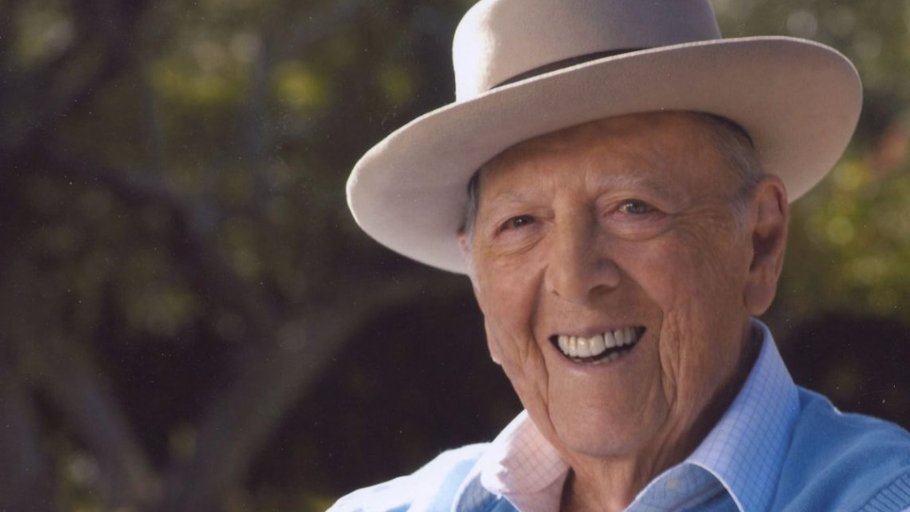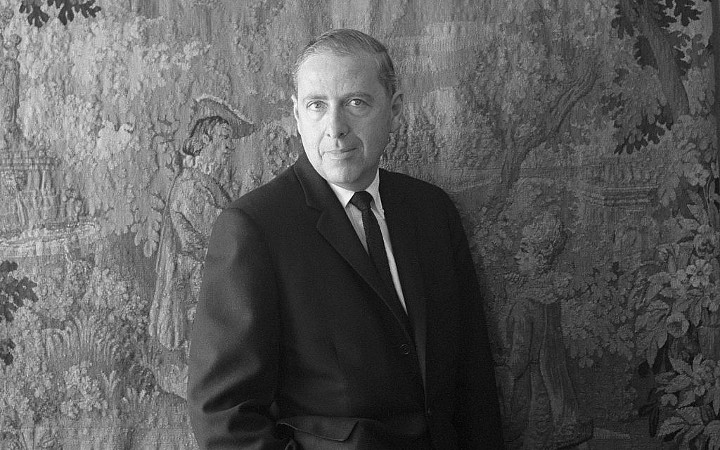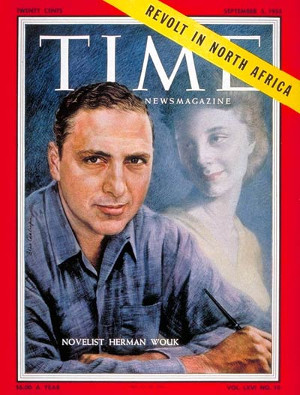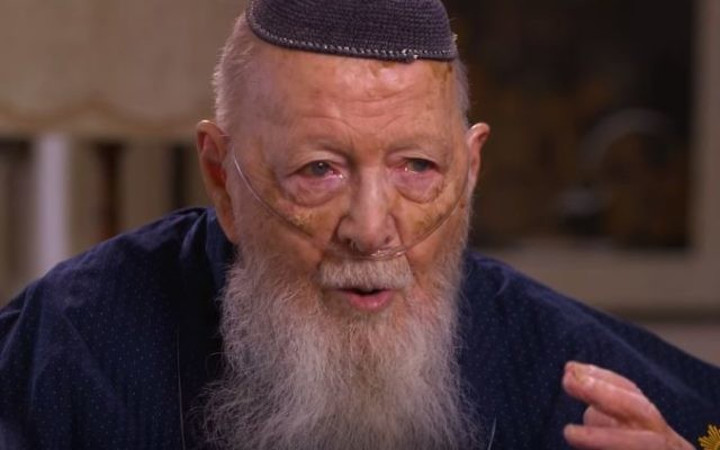 Iran’s Attack on Israel
Iran’s Attack on Israel


6 min read
The bestselling author was a staunch defender of Jewish life. He recently passed away at the age of 103.
Herman Wouk, the Pulitzer Prize winning and bestselling author, has died at the age of 103, just ten days short of his 104th birthday. His long career spanned a tumultuous time in American Jewish history, as many first and second generation Jews assimilated and shed their Jewish identities.
Throughout it all, Wouk was a passionate spokesman for Jewish rituals and lifestyle, introducing many Jews and non-Jews to the beauty of a Jewish life and helping traditional Judaism go mainstream. His book This Is My God was a must-read for searching Jews finding their way back to Jewish observance.
Wouk was born in New York in 1915; his parents Esther and Abraham Wouk were religious Jewish immigrants from Belarus who raised their three children with a deep love of being Jewish. Following college at Columbia University, Wouk worked as a comedy sketch writer, then joined the navy after the attack on Pearl Harbor, serving with distinction. He later said that soldiers from all over the United States changed him, giving him a better understanding of his country and the people in it. Soon, he became a part of the fabric of American culture himself, bringing Jewish experiences into the mainstream American experience.
His novel Marjorie Morningstar was published in 1955 and became a runaway bestseller, selling three million copies in the US alone. It featured Marjorie, a Jewish American woman who tries to become an actress, shedding much of her Judaism and conventional family life along the way. At the end of the novel, after many disappointments, Marjorie realizes what will truly make her happy, settling for a much more sedate lifestyle, marrying a Jewish husband and raising children. The novel was one of the first to describe an attractive, typical character who was also Jewish, and broke new ground in describing Jewish traditions and rituals such as a Passover Seder in a popular book.

When Marjorie Morningstar was made into a movie starring Natalie Wood in 1958, it was the first American film since The Jazz Singer in 1927 to depict Jewish rituals on screen, making Jewish observance acceptable to a new generation of theatre-goers.
Wouk was prolific, writing over two dozen novels, including such wildly popular works as The Caine Mutiny in 1951 and The Winds of War in 1971. He wrote several books about World War II, the Holocaust, and the state of Israel. One of his favorite books, however, was non-fiction: This is My God, first published in 1959. At a time of widespread assimilation, Wouk wanted to explain traditional Judaism to a wider audience. His book described Jewish tradition, including keeping kosher, the Jewish holidays, and milestones such as brit milah and weddings. He wanted, he wrote, to give Jews “permission to believe” in a religion that was often seen as old fashioned and irrelevant. For years, This is My God was a popular bar mitzvah gift and was widely read by both Jews and non-Jews.
 In describing a typical American Jews of the time, Wouk wrote “his grandparents were fairly religious, his parents much less so and he is wholly indifferent”. This assimilated American Jew is well educated, has a good job, and is good-hearted and pleasant - but is also intensely ashamed of being a Jew. Wouk’s book was his attempt to change that, to show the beauty and majesty of the Jewish faith, and to encourage readers to see themselves as part of a proud tradition and wider Jewish community.
In describing a typical American Jews of the time, Wouk wrote “his grandparents were fairly religious, his parents much less so and he is wholly indifferent”. This assimilated American Jew is well educated, has a good job, and is good-hearted and pleasant - but is also intensely ashamed of being a Jew. Wouk’s book was his attempt to change that, to show the beauty and majesty of the Jewish faith, and to encourage readers to see themselves as part of a proud tradition and wider Jewish community.
In the 1988 editions of the book, Wouk noted “if I were to write it afresh now, the book would have a more intensely Jewish tone. In 1959 I was preoccupied with proving that an educated Westerner could live a traditional Jewish existence, not only without any intellectual sacrifices, but much to his enrichment. Today, I take that for granted.”
Within the period of high assimilation rates in the 1950s, 1960s and 1970s, however, Wouk stood out as a proud defender of Jewish tradition and identity. In 1955 he was featured on the cover of Time magazine, and he talked about his return to the traditional Jewish lifestyle with which he grew up. It was an unpopular position at the time but Wouk was adamant that he wouldn’t compromise his Jewishness, even if it seemed unfashionable. “He is a devout Orthodox Jew who had achieved worldly success in worldly-wise Manhattan,” the Time article explained, “while adhering to dietary prohibitions and traditional rituals which many of his fellow Jews find embarrassing.”
Indeed, Wouk lived a glamorous life, with homes in Manhattan, the US Virgin Islands, and Fire Island off the coast of New York. He dressed well and was well-spoken in interviews. The fact that he also maintained Jewish traditions was proof to some that American Jews could be educated and successful and also be religiously observant and proud of their Jewishness. He was married to the same woman, Betty Sarah Brown, for 66 years, until her death in 2011. They had three children, two of whom survive him, as well as three grandchildren and two great grandchildren.
Wouk’s life, like that of American Jews as a whole, was one of evolution. Towards the end of his life Wouk seems to have become even more religiously observant, studying the Talmud every day and helping to establish Jewish study groups near his various homes. In later years, he also taught weekly Talmud classes.

Many of Wouk’s books remain popular. Yet his greatest legacy might be his intense pride in his Jewishness - and his encouragement to other Jews to be proud as well. In 1988, Wouk recalled a meeting he’d had years earlier with David Ben Gurion, the first Prime Minister of Israel.
“Ben Gurion said to me in his office,” Wouk recalled, “the wise, tough old builder of Israel, with the floating white hair of a dreamer and the hard jaw of an army general - ‘You Jews in the United States are different from any Jewish community that has ever existed. You are not strangers or no more strangers than anyone else in your land. America consists of immigrants. You belong like the rest, and you will prosper. But how will you survive as Jews?’
“Without thinking,” Wouk recounted, “I answered, ‘Through the religion’.”
That devotion to Judaism and Jewish tradition maintained Wouk throughout his long life, and continues to inspire us with his works and his example. May Herman Wouk’s memory be a blessing for us all.
